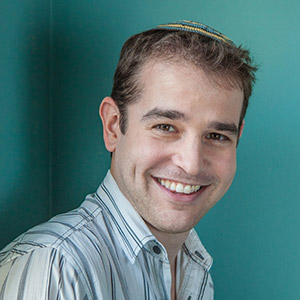School is a very stressful time, whether you’re in high school, college, or are going back to school as an adult. Many students can’t get perfect grades, in fact, most probably can’t get perfect grades, and we’ve seen many students drive themselves crazy in the quest for perfection.
When students, or adults in the everyday world, refuse to allow themselves to fail, it can be incredibly harmful and damaging to their mental health. Now some people are telling students it’s okay to fail, and you should allow it to happen from time to time.
School and Mental Health
As one writer on The Odyssey explains, “C’s may get degrees, but failing makes you succeed.” And indeed, some of the most successful people in the world have said that without failing you won’t be successful.
Many people take failure too hard, and it can become a vicious cycle that is detrimental to your mental health. As Rachel Caddell writes, “It’s OK to fail because sometimes we need to. It’s OK to hit rock bottom to figure out where you need to start your life and to discover who you are. It’s OK not to be OK, but it’s not OK to stay that way.”
Pushing Too Hard
This story is hitting at the right time. The college admissions scandal is showing that many parents are pushing too hard for their kids to get top grades and go to top schools, and if they have to cheat to achieve this, then so be it. This also comes at a time when a lot of students are suffering from greater anxiety and depression than ever.
As KGMI reports, there was a conference where several people spoke at Bentley University in Massachusetts, telling students it’s okay to fail. One person who spoke ended up putting a company out of business. Another recalled bombing her statistics class. Another talked about struggling with drug addiction.
The director of the university’s counseling center told the audience, “Failure is normal. It’s healthy. And I think people on this panel would argue it actually is transformative. If you’re not failing, it probably means that you’re not taking enough risks.”
And one mental health expert spoke out about how “anxiety is rising like crazy” among students. For many of them, “it’s the first time they’re navigating independently away from home, and if they also don’t have basic life skills, it’s sort of a perfect storm.”
One college has also put out a statement for teachers, reminding them to “normalize failure. It’s a part of life. It’s one way we learn. Sometimes students need to fail, and not be given an undeserved grade by a sympathetic faculty member.”
Trying to get your way through school and make a better future for yourself is not easy at any age. There’s a lot of stress and pressure that comes with it, and sometimes failure can happen no matter what. It’s important to teach people that failure is okay, it can be necessary many times, and many times you’ll learn a lot from it. At first, it can be devastating, but it can truly be better for your mental health in the long run.

Mendi is a passionate advocate for teens and young adults in the fields of mental health and addiction. Baron creates programs to bring a unique approach to the treatment of adolescents and young adults who are struggling with a variety of emotional and behavioral disorders and substance abuse issues. Clinically trained, Baron earned a BA with honors in psychology and social work at the University of Maryland and an MSW at the University of Maryland School of Social Work. His extensive experience as a therapist includes individual and group counseling for children, adolescents, and families in various settings. Gaining insight and experience, he has worked at several treatment centers including the Chesapeake Center for Youth Development, the Carroll County Youth Services Bureau, Chabad Crisis Centers, and the Center for Discovery and Adolescent Change. Before launching Ignite Teen Treatment, Mendi conceived and built, from the ground up, multiple successful, high end adolescent residential and outpatient programs in Los Angeles.
Mendi has appeared on the Dr. Phil show, is regularly featured in mental health and addiction publications, and speaks around the country in person and on Tv/Radio on these topics. With his newest ventures, Mendi instills a rare blend of energy, creativity, and experience to the treatment of teens, young adults, and their families struggling with addiction and mental health issues. The son of a Rabbi, eldest of 11 children, is a part-time rock musician, boxer, cantor, and father of three.
